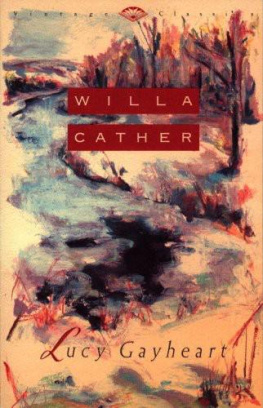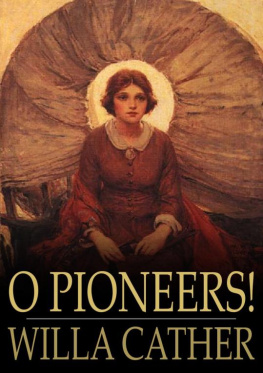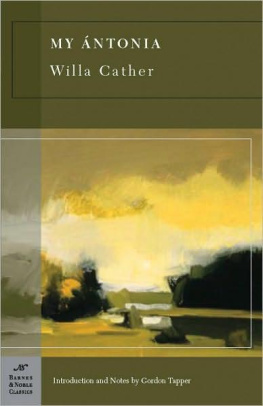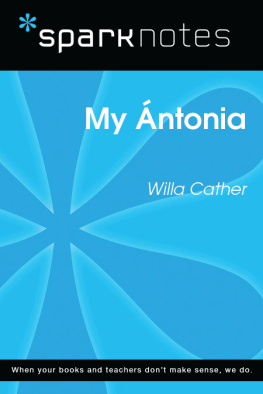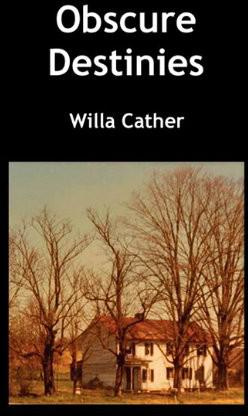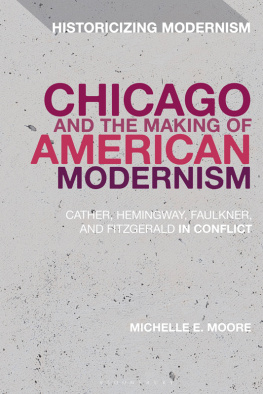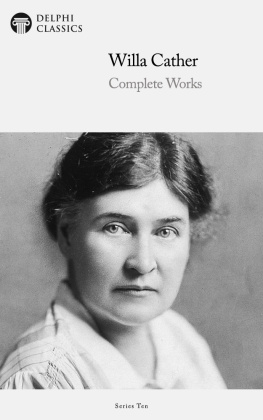Title: Lucy Gayheart (1935) Author: Willa Cather A Project Gutenberg of Australia ebook eBook No.: 0200481.txt Language: English Date first posted: July 2002 Date most recently updated: July 2002
This eBook was produced by: Don Lainson dlainson@sympatico.ca
Project Gutenberg of Australia eBooks are created from printed editions which are in the public domain in Australia, unless a copyright notice is included. We do NOT keep any eBooks in compliance with a particular paper edition.
Copyright laws are changing all over the world. Be sure to check the copyright laws for your country before downloading or redistributing this file.
This eBook is made available at no cost and with almost no restrictions whatsoever. You may copy it, give it away or re-use it under the terms of the Project Gutenberg of Australia License which may be viewed online at http://gutenberg.net.au/licence.html
To contact Project Gutenberg of Australia go to http://gutenberg.net.au
Title: Lucy Gayheart Author: Willa Cather (1935)
BOOK I
1
In Haverford on the Platte the townspeople still talk of Lucy Gayheart. They do not talk of her a great deal, to be sure; life goes on and we live in the present. But when they do mention her name it is with a gentle glow in the face or the voice, a confidential glance which says: Yes, you, too, remember? They still see her as a slight figure always in motion; dancing or skating, or walking swiftly with intense direction, like a bird flying home.
When there is a heavy snowfall, the older people look out of their windows and remember how Lucy used to come darting through just such storms, her muff against her cheek, not shrinking, but giving her body to the wind as if she were catching step with it. And in the heat of summer she came just as swiftly down the long shaded sidewalks and across the open squares blistering in the sun. In the breathless glare of August noons, when the horses hung their heads and the workmen took it slow, she never took it slow. Cold, she used to say, made her feel more alive; heat must have had the same effect.
The Gayhearts lived at the west edge of Haverford, half a mile from Main Street. People said out to the Gayhearts and thought it rather a long walk in summer. But Lucy covered the distance a dozen times a day, covered it quickly with that walk so peculiarly her own, like an expression of irrepressible light-heartedness. When the old women at work in their gardens caught sight of her in the distance, a mere white figure under the flickering shade of the early summer trees, they always knew her by the way she moved. On she came, past hedges and lilac bushes and woolly-green grape arbours and rows of jonquils, and one knew she was delighted with everything; with her summer clothes and the air and the sun and the blossoming world. There was something in her nature that was like her movements, something direct and unhesitating and joyous, and in her golden-brown eyes. They were not gentle brown eyes, but flashed with gold sparks like that Colorado stone we call the tiger-eye. Her skin was rather dark, and the colour in her lips and cheeks was like the red of dark peoniesdeep, velvety. Her mouth was so warm and impulsive that every shadow of feeling made a change in it.
Photographs of Lucy mean nothing to her old friends. It was her gaiety and grace they loved. Life seemed to lie very near the surface in her. She had that singular brightness of young beauty: flower gardens have it for the first few hours after sunrise.
We missed Lucy in Haverford when she went away to Chicago to study music. She was eighteen years old then; talented, but too careless and light-hearted to take herself very seriously. She never dreamed of a career. She thought of music as a natural form of pleasure, and as a means of earning money to help her father when she came home. Her father, Jacob Gayheart, led the town band and gave lessons on the clarinet, flute, and violin, at the back of his watch-repairing shop. Lucy had given piano lessons to beginners ever since she was in the tenth grade. Children liked her, because she never treated them like children; they tried to please her, especially the little boys.
Though Jacob Gayheart was a good watchmaker, he wasnt a good manager. Born of Bavarian parents in the German colony at Belleville, Illinois, he had learned his trade under his father. He came to Haverford young and married an American wife, who brought him a half-section of good farm land. After her death he borrowed money on this farm to buy another, and now they were both mortgaged. That troubled his older daughter, Pauline, but it did not trouble Mr. Gayheart. He took more pains to make the band boys practise than he did to keep up his interest payments. He was a town character, of course, and people joked about him, though they were proud of their band. Mr. Gayheart looked like an old daguerreotype of a minor German poet; he wore a moustache and goatee and had a fine sweep of dark hair above his forehead, just a little grey at the sides. His intelligent, lazy hazel eyes seemed to say: But its a very pleasant world, why bother?
He managed to enjoy every day from start to finish. He got up early in the morning and worked for an hour in his flower garden. Then he took his bath and dressed for the day, selecting his shirt and necktie as carefully as if he were going to pay a visit. After breakfast he lit a good cigar and walked into town, never missing the flavour of his tobacco for a moment. Usually he put a flower in his coat before he left home. No one ever got more satisfaction out of good health and simple pleasures and a blue-and-gold band uniform than Jacob Gayheart. He was probably the happiest man in Haverford.
2
It was the end of the Christmas holidays, the Christmas of 1901, Lucys third winter in Chicago. She was spending her vacation at home. There had been good skating all through Christmas week, and she had made the most of it. Even on her last afternoon, when she should have been packing, she was out with a party of Haverford boys and girls, skating on the long stretch of ice north of Duck Island. This island, nearly half a mile in length, split the river in two,or, rather, it split a shallow arm off the river. The Platte River proper was on the south side of this island and it seldom froze over; but the shallow stream between the island and the north shore froze deep and made smooth ice. This was before the days of irrigation from the Platte; it was then a formidable river in flood time. During the spring freshets it sometimes cut out a new channel in the soft farm land along its banks and changed its bed altogether.
At about four oclock on this December afternoon a light sleigh with bells and buffalo robes and a good horse came rapidly along the road from town and turned at Bensons corner into the skating-place. A tall young man sprang out, tied his horse to the hitch-bar, where a row of sleighs already stood, and hurried to the shore with his skating-shoes in his hand. As he put them on, he scanned the company moving over the ice. It was not hard to pick out the figure he was looking for. Six of the strongest skaters had left the others behind and were going against the wind, toward the end of the island. Two were in advance of the rest, Jim Hardwick and Lucy Gayheart. He knew her by her brown squirrel jacket and fur cap, and by her easy stroke. The two ends of a long crimson scarf were floating on the wind behind her, like two slender crimson wings.
Harry Gordon struck out across the ice to overtake her. He, too, was a fine skater; a big fellow, the heavy-weight boxer type, and as light on his feet as a boxer. Nevertheless he was a trifle winded when he passed the group of four and shot alongside Jim Hardwick.
Jim, he called, will you give me a turn with Lucy before the sun goes down?
Next page
